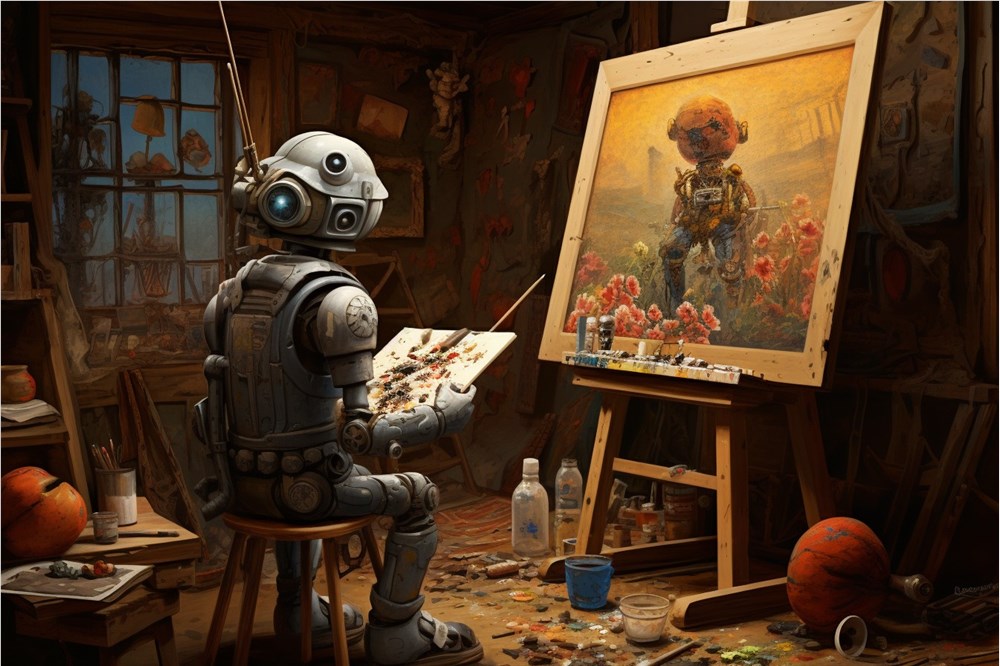A photo giant headquartered in Seattle, USAGetty Imagesis actively embracing artificial intelligence (AI) technology to adapt to the threats and opportunities in this field. The company has adopted a dual strategy, on the one hand, filing a lawsuit against an AI image generation company involved in infringement, and on the other hand, launching a new AI image generation service.
Getty Images has sued a major provider of AI-generated imagery, alleging “massive and brazen infringement” of its image library. The lawsuit seeks to defend the company’s image collection over intellectual property infringement.

Source Note: The image is generated by AI, and the image is authorized by Midjourney
However, Getty Images is not content with just taking legal action. Recently, they joined the niche but growing market of AI image generation with the launch of a new service called "Generative AI." This service allows customers to create novel images based on Getty Images' own vast library of human-produced photos.
Getty Images CEO Craig Peters said the new service is "commercially viable" for commercial customers and stressed that it was "not trained using images stolen from the internet." This is different from some earlier AI image generation services, such as OpenAI's DALL-E, Midjourney and Stability AI, which were accused of copyright infringement.
Earlier this year, Getty Images filed a lawsuit in federal court in Delaware, accusing London-based Stability AI of copying more than 12 million photos from its image library without permission, as well as related captions and metadata, to build a competing business. Getty Images claims they are entitled to up to $150,000 in damages for each infringing work, theoretically up to $1.8 trillion. However, Stability AI has attempted to dismiss or transfer the case, but has not yet formally responded to the allegations.
Generative AI was developed by Getty Images in a long-running collaboration with California tech company and chipmaker Nvidia, predating the legal challenge against Stability AI. The service is based on Edify, an AI model from Nvidia’s generative AI division, Picasso. It promises “full indemnification” for commercial use, aiming to avoid the intellectual property risks that arise when businesses use generative AI tools. In addition, Getty Images contributors will also be paid for their images to be included in the training set as part of the royalty obligations, thus achieving the company’s goal of sharing revenue with contributors.
Intended users of Generative AI include brands looking for marketing materials or other creative images, an area where Getty Images competes with rivals such as Shutterstock, which has partnered with OpenAI’s DALL-E, and software company Adobe, which has developed its own AI image-generating tool, Firefly. The service is not expected to appeal to users looking for photojournalism or editorial content, an area where Getty Images competes with news organizations including the Associated Press.
Craig Peters said the new model is not capable of generating politically harmful "deepfake" images because it automatically blocks requests showing recognizable people or brands. This provides an extra layer of assurance that the images are authentic and legal.
It’s important to note that AI-generated content will also not be added to Getty Images’ content library, which will be reserved for photos of “real people doing real things in real places.” This decision is intended to keep the image libraryauthorityand credibility.